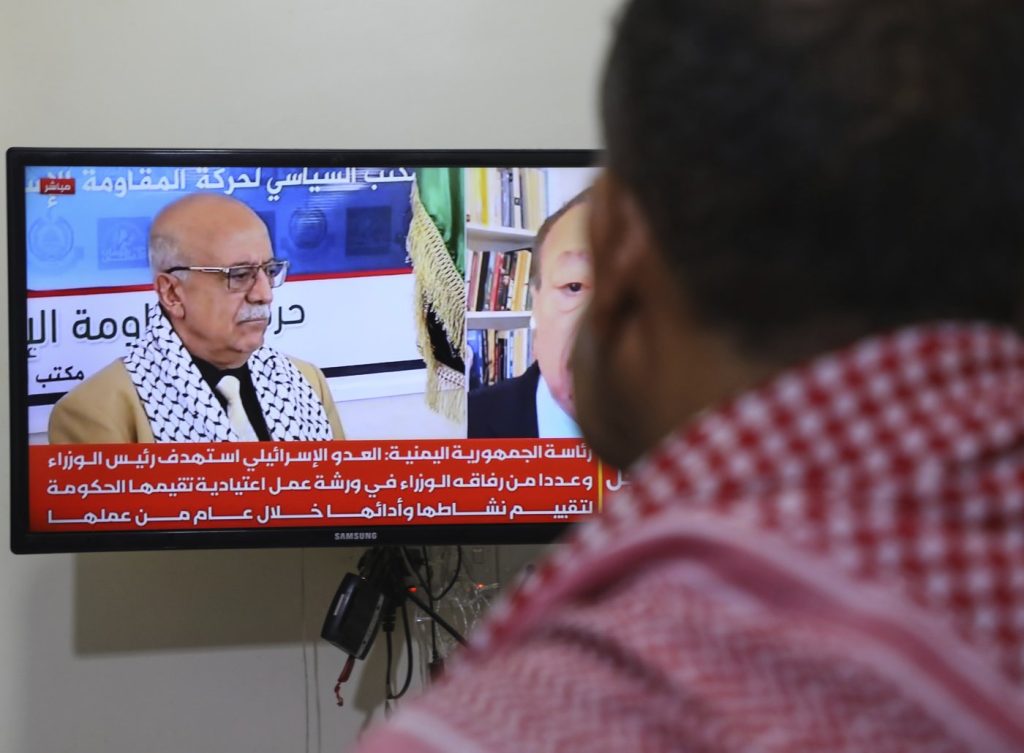CAIRO (AP) — An Israeli airstrike has resulted in the death of Ahmed al-Rahawi, the prime minister of the Houthi rebel-controlled government in Yemen's capital, Sanaa. The Houthis reported on Saturday that al-Rahawi was the most senior official to be killed in the ongoing Israeli-U.S. military campaign against the Iranian-backed rebels.
Al-Rahawi died during a strike that occurred on Thursday while he was attending a routine workshop aimed at evaluating the government's performance over the past year. Several other ministers were also reported killed or wounded in the attack. This meeting took place in a villa located in Beit Baws, a historic village in southern Sanaa, according to tribal leaders who spoke to The Associated Press on the condition of anonymity due to safety concerns.
The timing of the airstrike was significant; it coincided with a live broadcast from the rebel-owned television station where Abdul Malik al-Houthi, the leader of the Houthis, was delivering a speech focused on developments in Gaza and promising retaliation against Israel. Senior Houthi officials routinely gathered to watch al-Houthi's speeches, leading to questions about the strategic timing of the Israeli operation.
Al-Rahawi, although not part of the inner circle of military strategists around al-Houthi, was appointed as prime minister in August 2024 and was responsible for managing the civilian affairs in Sanaa and other areas controlled by the Houthis. His background includes a previous alliance with former Yemeni President Ali Abdullah Saleh, and he joined forces with the Houthis in 2014 as they took control of Sanaa amid Yemen's ongoing civil war.
The Israeli military confirmed the strike, referring to it as a "precise" attack on a Houthi military target and stated that al-Rahawi, along with other senior officials, was responsible for various terror actions against Israel. The Israeli strikes were part of a broader campaign that commenced in response to Houthi missile and drone attacks directed at Israel, which the rebels claimed were made in solidarity with the Palestinian people amidst the ongoing conflict in Gaza.
This airstrike was part of a series of escalations; the Houthis previously launched ballistic missiles at Israel and targeted shipping vessels in the Red Sea, actions that have significantly impacted maritime trade in the region. The U.S. and Israeli military operations have reportedly killed dozens in Yemen, with one strike in April resulting in at least 68 fatalities at a facility holding African migrants.
Analyst Ahmed Nagi from the Crisis Group International described the killing of al-Rahawi as a "serious setback" for the Houthi leadership and indicative of a shift in Israeli strategy from targeting infrastructure to directly striking at leadership figures. This poses an increased threat to the rebels' command structure and complicates their operations going forward.
In May, a deal brokered by the Trump administration had briefly halted airstrikes in exchange for the cessation of Houthi attacks on shipping. However, the Houthis maintained their insistence that the agreement did not encompass a halt to attacks on targets believed to be connected to Israel.












